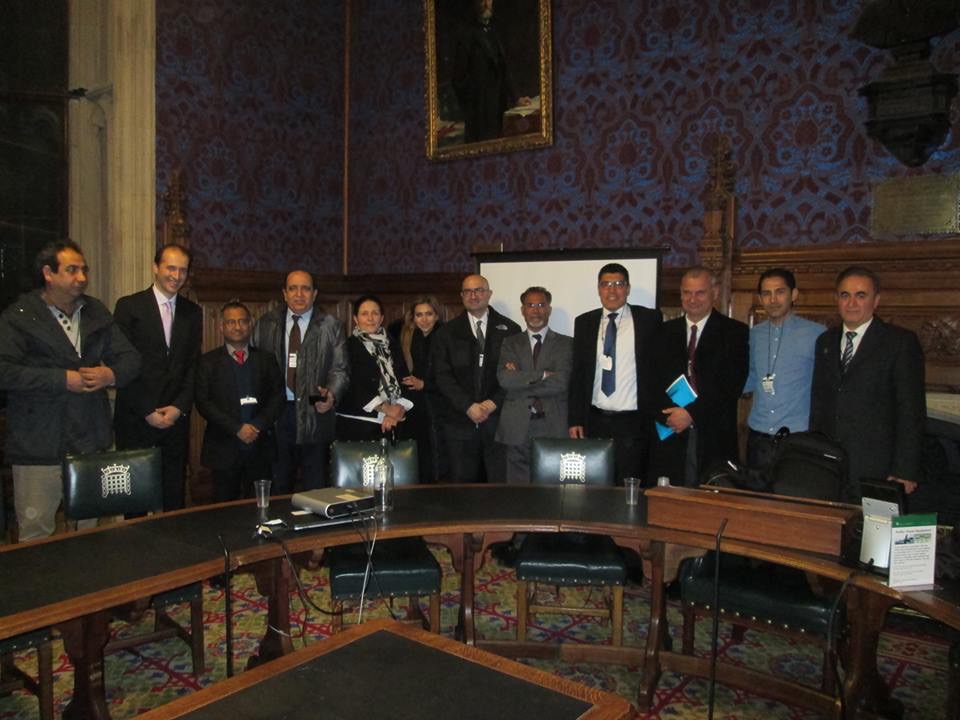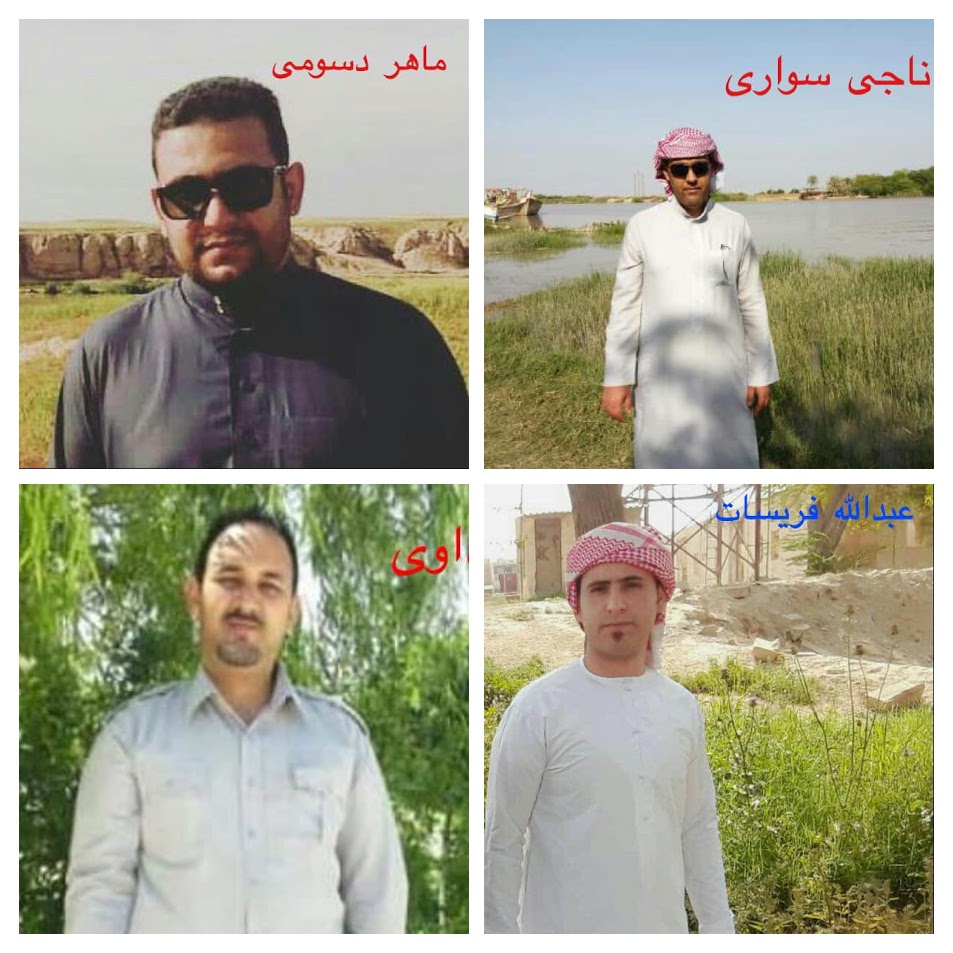URGENT ACTION: WHEREABOUTS OF DISAPPEARED MAN UNKNOWN
URGENT ACTION: WHEREABOUTS OF DISAPPEARED MAN UNKNOWNThe Iranian authorities have yet to establish the fate and whereabouts of Yousef Silavi,
from Iran’s Ahwazi Arab minority, who has been missing since November 2009. He may
be subjected to enforced disappearance and is at risk of torture and other ill-treatment,
as well as extrajudicial execution.
Amnesty International has recently learned that Yousef Silavi, a 57-year-old retired technician from Iran’s Ahwazi
Arab minority, has been missing since late 2009. He was last seen by a family friend in his home in the city of
Ahvaz, Khuzestan province, around 6 November 2009. His wife, who was out of the country visiting their two
daughters who had been studying at Damascus University in Syria, reported him as missing to the police when she
returned on 8 November 2009. The police closed the missing person’s report within six months without adequate
investigation. The authorities have continued to deny that they have officially arrested Yousef Silavi, though his
family believes he is in their custody because of the restrictions and threats they have come under since he went
missing - as well as off-the-record statements made by officials. A few days after he went missing, a friend who had
notified the family of Yousef Silavi’s disappearance was detained for one night by Ministry of Intelligence officials
and questioned about him. The offices apparently beat and threatened him, saying that if he talked about the
incident his life would be in danger. Another close contact of the family was threatened and told by an official from
the Revolutionary Guards that if she did not stop seeking information about Yousef Silavi, she would be detained
alongside him. Yousef Silavi’s wife has been subjected to strict travel restrictions and was told by a Revolutionary
Guard official that the only way she will be able to see her husband would be to bring their daughters back to Iran.
The official alleged that their daughters had been in contact with Iranian opposition groups in Damascus.
Yousef Silavi was not politically active. However, his wife comes from a politically active Arab family. In addition
Yousef Silavi’s cousin and brother-in-law, Mansour Silavi (who died in 2008) had been a prominent figure in the
community, advocating for greater recognition of Ahwazi Arab rights. Mansour Silavi founded a political party called
the Democratic Solidarity Party of Ahwaz prior to leaving Iran and had been under surveillance by the authorities
because of his political activism.
Please write immediately in English, Persian, Arabic, French, Spanish or your own language:
Calling on the Iranian authorities to take steps to establish Yousef Silavi’s whereabouts and fate;
Urging them, if he is in custody, to released him unless he is promptly charged with a recognizable criminal
offence, given immediate access to his family, lawyer and doctor, and tried in proceedings that adhere to
international standards for fair trial;
Urging them to ratify promptly and without reservation the Convention for the Protection of All Persons from
Enforced Disappearances and its Optional Protocols.
PLEASE SEND APPEALS BEFORE 7 JUNE 2016 TO:
Office of the Supreme Leader
Ayatollah Sayed ‘Ali Khamenei
Salutation: Your Excellency
Head of the Judiciary
Ayatollah Sadegh Larijani
Salutation: Your Excellency
And copies to:
President
Hassan Rouhani
Please send your appeals to the care of diplomatic representatives accredited to your country, listed below. If there is no Iranian
embassy in your country, please mail the letter to the Permanent Mission of the Islamic Republic of Iran to the United Nations, 622
Third Avenue, 34th Floor, New York, NY 10017, United States. Please insert local diplomatic addresses below:
Name Address 1 Address 2 Address 3 Fax Fax number Email Email address Salutation Salutation
Please check with your section office if sending appeals after the above date.
URGENT ACTION
WHEREABOUTS OF DISAPPEARED MAN UNKNOWN
ADDITIONAL INFORMATION
Yousef Silavi’s eldest daughter, Mona Silavi, had helped the Ahwazi Arab refugee community when she lived in Syria. She was
summoned for questioning a number of times by officials from the Iranian embassy in Damascus. In October 2009 when Yousef
Silavi was visiting his daughters in Damascus, he and Mona Silavi were both called for questioning by embassy officials before
his return to Iran later that month. Yousef Silavi’s wife was out of the country at the time of his disappearance. She was visiting
their two daughters who had been studying at Damascus University in Syria, when the family was alerted that he had not been
seen or heard from for several days. Since he has being missing, Yousef Silavi’s wife has visited hospitals and morgues in
Ahvaz in search of her husband. She has written letters to Iran’s Supreme Leader Ayatollah Sayed ‘Ali Khamenei and a
member of parliament from Ahvaz, and has sought help from various judicial and security authorities. The efforts of Yousef
Silavi’s family to obtain information about him from the authorities have however been ignored. Officials have given them
various mixed messages, including telling them “maybe your father is married and is not coming back”, “maybe your father has
lost his memory”, and “maybe he has disappeared due to a tribal matter”. The movements of Yousef Silavi’s wife are now
restricted: the authorities have told her that she is only allowed to leave Iran once a year and, even then, the list of countries to
which she is allowed to travel is severely restricted.
The Iranian Ahwazi Arab community in the country’s Khuzestan province have long argued that the government systematically
discriminates against them, particularly in employment, housing, access to political office, and the exercise of cultural, civil and
political rights. The inability to use their mother language as a medium of instruction for primary education is also a source of
deep resentment and frustration. Amnesty International has documented numerous cases where security authorities have
arrested and detained politically active Ahwazi Arabs, or their family members. In many cases they have held them
incommunicado and in solitary confinement in undisclosed detention centres, subjecting them to enforced disappearance and
thus placing them at increased risk of torture and other ill-treatment. The UN Special Rapporteur on the human rights situation
in Iran, Ahmed Shaheed, has also expressed concern via his reports documenting cases of arrest, detention and prosecutions
of Ahwazi Arabs for protected activities that promote social, economic, cultural, linguistic and environmental rights. In his
October 2013 report, the Special Rapporteur reported of Ahwazi Arabs having been psychologically and physically tortured
during interrogation, including by flogging or beatings. They have being made to witness executions, received threats against
family members and the actual detention of family members for the purpose of implicating others, or to compel others to report
to the authorities. One interviewee reported that a cousin, nephew and brother had been arrested in June 2012 for the purpose
of coercing their children, currently living abroad, to return to the country.
International law absolutely prohibits enforced disappearances and specifies that no exceptional circumstances whatsoever may
be invoked as justification. Although the word “disappearance” might imply an innocuous or non-violent act, in reality enforced
disappearances are particularly cruel and violent human rights violations. Individuals are cut off from the outside world, left
knowing that their loved ones have no idea where they are or whether they are dead or alive. They are placed outside of the
protection of the law and denied their right to legal representation or a fair trial. Treaty bodies, human rights courts and other
human rights bodies have repeatedly found that enforced disappearances also violate the right to liberty and security of the
person, the right not to be subjected to torture or other ill-treatment, the right to remedy, and the right to life. An enforced
disappearance is also a “continuing crime”, which takes place so long as the disappeared person remains missing and
information about his or her fate or whereabouts has not been provided by the state. Enforced disappearances also have a
profound effect on the family members and friends of the disappeared individuals who are sometimes forced to anxiously wait
years before they find out if their loved one is alive or dead.
Name: Yousef Silavi
Gender m/f: m
UA: 97/16 Index: MDE 13/3909/2016 Issue Date: 26 April 2016
- Details
- News











